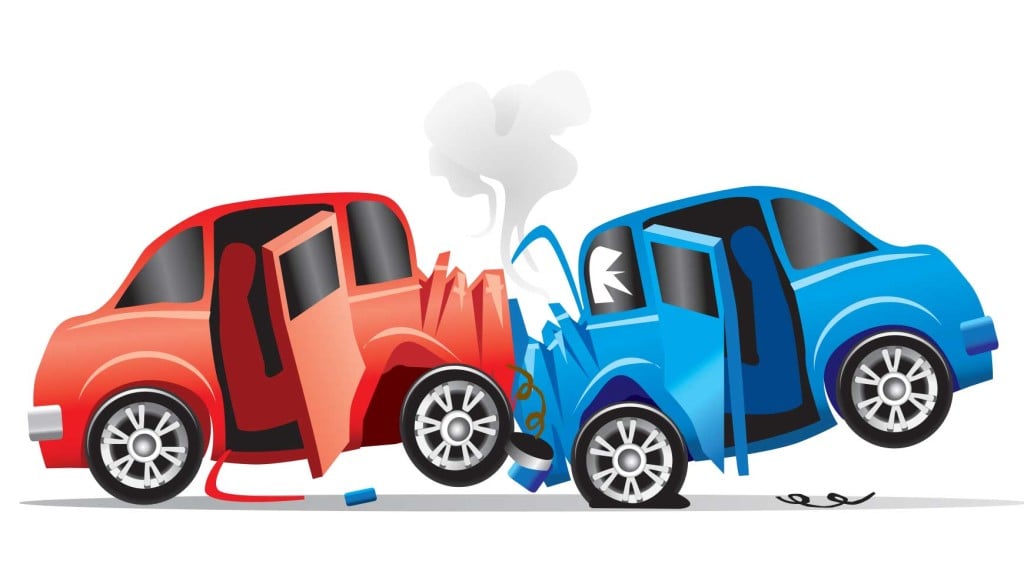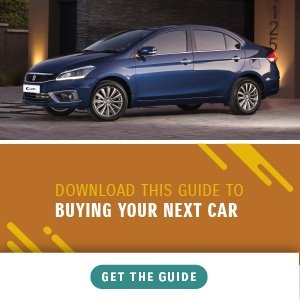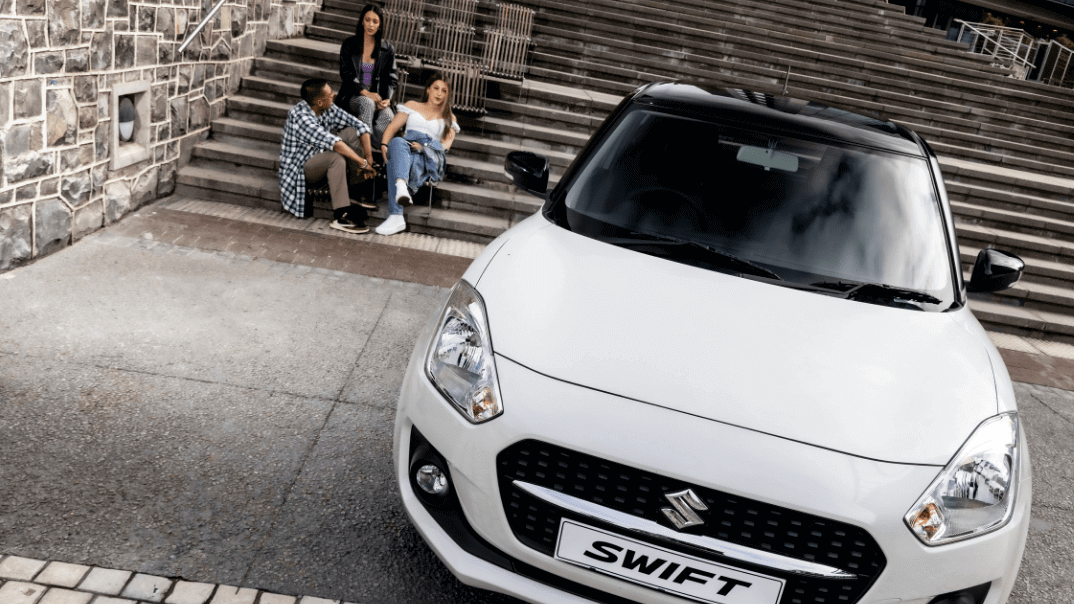 We all know how inconvenient dealing with the aftermath of a fender bender can be. Here’s how to compare car insurance, so you’re covered in an emergency.
We all know how inconvenient dealing with the aftermath of a fender bender can be. Here’s how to compare car insurance, so you’re covered in an emergency.
Insurance is really about peace of mind, protecting the new asset that you’ve just acquired. However, the average person isn’t necessarily familiar with the process entailed in acquiring insurance tailored specifically to meet their needs. We spoke to Denis Pascal, an insurance lecturer, and member of the Insurance Institute of South Africa (IISA) with over 40 years of experience in the industry, for some tips on how to compare car insurance policies.
With a reputation for “some of the most dangerous roads in the world”, car insurance in South Africa is a necessary evil. When it comes to motor insurance, you want to make sure you’re fully covered in an accident situation - but how do you know if your insurance policy covers everything you need it to?
How to compare car insurance policies
“Motor policies typically offer a number of cover options as well as extensions to the basic cover” says Denis. Some examples of extensions include:
Car hire following an accident
This is extremely important if your household only has one vehicle. Getting to and from work can be a nightmare when your car is in for repairs. There are various different periods of car hire (some are seven days, others up to a month) so be aware of this as you’ll be liable for the cost of any further car hire outside of this period.
Towing charges
Towing is extremely expensive, and can be risky if you’re not using a reputable company to tow your car. Make sure that your policy covers towing in the case of an emergency.
Waiver of excess
A waiver of excess adds an additional amount to your monthly premium, however, in the event of an accident you won’t be liable to pay any excess toward repairs. As a general rule, the lower your premium, the higher your excess amount will be.
Emergency hotel accommodation
Certain policies can include emergency hotel accommodation in the event of an accident away from home. This is handy if you do a lot of travelling for business, as you won’t get left in the lurch, having to fork out for a place to sleep overnight.
Roadside assistance
There’s nothing worse than getting a flat on the side of the freeway, so roadside assistance is a very handy service have. Certain car manufacturers (including Suzuki) include roadside assistance in their warranty. However, if you don’t receive roadside assistance through your dealership, you may want to consider adding it through your insurance policy.
Outstanding finance charges
As you’re probably aware, your car is a depreciating asset - meaning it loses value each year. Having bought your car on finance, it can be a real problem if your car is stolen - if the actual value of the car is now less than the outstanding balance on the loan. You can include an extension so that your insurer will pay off the full amount outstanding to the bank.
In order for you to enjoy the full benefit of your cover, you need to understand these services (and whether or not they’re included with your policy).
Buying car insurance can be confusing if you don’t know what to look for in a policy. “You’ll need to read through your policy wording carefully to ensure that you understand it. Many people, however, only do so once they’re actually faced with a claim” says Denis. Quite often, a motorist will only find out that their policy doesn’t include car hire or towing once it’s too late - causing drivers to fork out of their own pocket to cover the balance.
“If you can afford to pay slightly higher premiums, it’s in your best interest to include some of these extensions, as it’s easier on your budget in the long term” advises Denis.
How to secure the best possible monthly insurance premium
“The best way to know that you’ve chosen the right policy is to obtain several insurance quotes” Denis explains. “This way you can compare premiums, excesses and terms.” While it’s tempting to opt for the cheapest quote, you need to make sure the terms outlined in your policy suit your needs. “Quite often there are limitations in the wording which could negatively affect you in the event of a claim” says Denis.
The quickest way to compare quotes is to do some online research. Websites like Hippo are a great resource for this, as they source quotes from various insurers on your behalf.
Denis explains, “buying the right cover is vital. If you’re not clued up on the contents of your policy, it’s helpful to have an insurance specialist to guide you through the process.” There are two ways to buy motor insurance. You can either buy your insurance via direct insurers or it can be bought through insurance brokers.
“The commission paid by insurance companies to brokers can increase your premiums by comparison to the direct insurers who don’t need to pay any commission. However, my personal preference is to appoint a good broker to look after your insurance portfolio,” Denis advises. This is because your broker’s knowledge of the market, expertise and advice is extremely valuable to the ordinary man on the street, who’s not familiar with insurance technicalities. “Should the unthinkable happen and you’re involved in an accident, your broker will also be there to help you through what’s often a traumatic process,” says Denis.
Unlike a direct insurer, your broker acts on your behalf. They’re there to help answer questions about your policy, ensure that you the best possible rates (e.g. by combining your household and car insurance policies) and assist with the administration in the event of a claim.
Factors that could influence your monthly premium
Make sure you keep the insurance premium in mind when setting a budget for your car. Denis explains, “you’ll need to insure the full value of the vehicle (plus any accessories). This will influence your premium as well as the claim payment in the event of a total loss.”
Factors which affect your premium include:
The vehicle itself (the model and engine capacity)
Your vehicle model and engine capacity will also affect your premiums. Cars with a larger engine are viewed as a higher insurance risk. Drivers who purchase more powerful engines are generally also more inclined to speeding, and therefore are involved in more frequent accidents.
There are ways to improve your monthly premium, for example, by buying a lighter colour car. White cars are the most visible on the road at night and during bad weather, therefore this reduces the risk of an accident occurring.
Your residential address
The address where the vehicle is parked at night is also a factor which will affect your monthly premium. This takes into account things like the likelihood of theft or break-ins. If you’re car is securely parked behind a locked gate at night, you’re likely to pay less on your monthly premium.
The usage of the vehicle (domestic vs. business)
If you use your private vehicle for business during the day, you’ll incur a higher premium. This is based on number of hours on the road - the more time you spend driving, the higher the chance of an accident occurring.
The regular driver (age, driving experience and previous claims history)
If you’re under 25, your insurance premiums could be higher than drivers who are older than 25. This is because lack of driving experience coupled with risky driving behaviour (e.g. driving faster than the speed limit) is quite common among young drivers. Experts found drivers are more likely to have an accident within their first year of obtaining their driver’s license, than at any other time in their lives.
Security features
Features like anti-smash-and-grab tinting and central locking will decrease your monthly premium.
Any existing no claim bonus
If you’re a seasoned driver, with existing insurance and have received a no claim bonus, this will decrease your monthly premium as you’re viewed as a low-risk driver.
Obtain a defensive driving certificate
While this may not lower your insurance premium, obtaining a defensive driving certificate could help you be a safer and more diligent driver.
Despite being somewhat of a grudge purchase, it’s important to make sure your car is fully insured. Too often, drivers take a chance and don’t insure their vehicle - leaving them completely stranded when an accident occurs. Don’t take that chance. Rather choose a car which is well within your budget, allowing you the extra wiggle room in your budget for a decent insurance policy.
This article is based on a general view of insurance and does not constitute financial advice. Your risk profile, driving experience and years with a current insurer may all affect your premium. We suggest you chat to your insurer to get the best policy for your needs.
Buying a new car is a huge step. ,Get tips and guidance from our guide to buying a new car to ensure you get all the answers you need.

.png)

